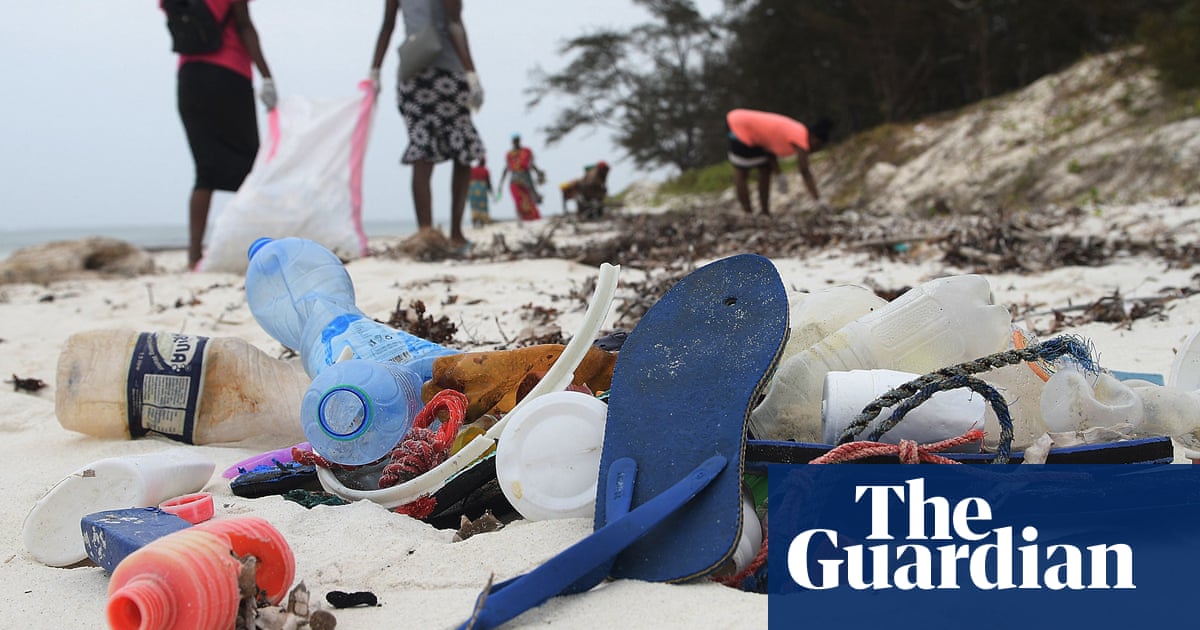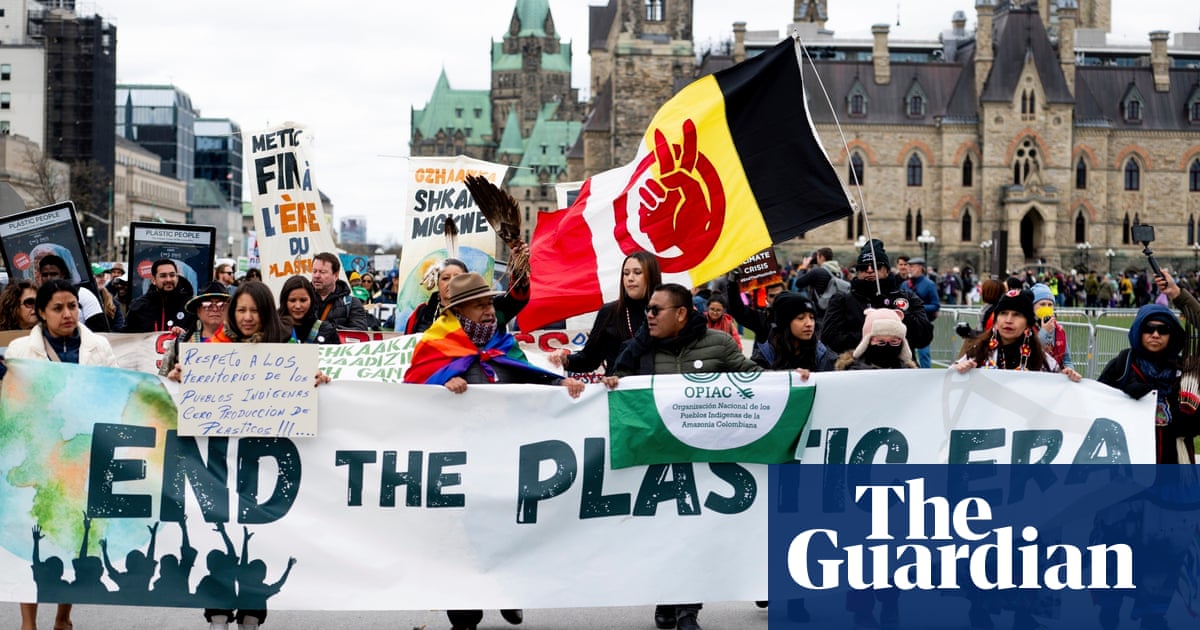
Support is growing internationally for a new global treaty to tackle the plastic pollution crisis, it has emerged, though so far without the two biggest per capita waste producers – the US and the UK – which have yet to signal their participation.
A UN working group on marine litter and microplastics met at a virtual conference last week to discuss the issue. More than two-thirds of UN member states, including African, Baltic, Caribbean, Nordic and Pacific states, as well as the EU, have declared they are open to considering the option of a new agreement.
The treaty would be akin to the Paris climate agreement or the Montreal protocol to prevent ozone depletion. Neither the UK nor the US have declared their desire for a new agreement.
Britain, which leaves the EU at the end of the year, is considering one of two options: to support increasing calls for negotiating a new global treaty, or to strengthen existing agreements to reduce plastic waste. A decision by Zac Goldsmith, a minister for the environment, is understood to be imminent. The US has so far opposed an international agreement on plastic waste.
The UN environment assembly, which set up the ad hoc working group (AHEG) on marine plastics in 2017, concluded that the existing international legal framework governing plastic pollution, including the Stockholm and the Basel conventions, is fragmented and ineffective.
The flow of plastic into the ocean is expected to triple by 2040 if current trends continue, up to 29m tonnes a year – the equivalent of 50kg for every metre of coastline in the world. All efforts made and announced so far to curb plastic waste are expected to reduce the volume by only 7%. Once in the sea, it breaks down into microplastics, to be ingested by marine life.
Political momentum for a global agreement to address the full lifecycle of plastic has been growing, with several high-level ministerial declarations in favour.
Earlier this month, a resolution calling for the world community to agree to a binding global agreement was adopted by International Union for the Conservation of Nature members, and 2 million people have signed a petition calling for one to be adopted.
At last week’s fourth and final meeting of the AHEG group, which will feed into UNEA’s 5th conference in 2021 and 2022, many delegates expressed concern that the crisis was being exacerbated by excess plastic pollution linked to personal protective equipment necessary to fight the coronavirus pandemic.
Several delegations voiced support of a new global agreement, although there was no consensus on whether it would only address marine plastic litter or go further to tackle plastics pollution as a whole and if it would be legally binding.
Ayub Macharia, the director of the National Environment Agency in Kenya, said the world required a global agreement to protect a “common heritage, our planet Earth”. He told delegates: “Kenya is on record in issuing a ban on polythene bags in 2017 and in single use plastic bags in protected areas in 2019.”
Without international backup, however, Kenya’s actions alone did not reduce waste, Macharia said, declaring that “because of our porous borders which allow the illegal trafficking of plastic,” it was merely pushed across Kenya’s borders to other countries.
Some industries that manufactured plastic bags in Kenya simply migrated to neighbouring countries, he said.
Roxanne Blesam, chief executive officer of Palau’s environmental quality protection board, said the republic joined the “overwhelming majority of AHEG experts who have indicated support for a binding global agreement”, and supported a proposition put forward by the EU for an intergovernmental negotiating committee to start work on it.
Hugo-Maria Schally, head of the multilateral environmental cooperation unit at the European commission, claimed the EU had been a proponent of a stronger global framework to address marine litter and marine plastic pollution for some time, and that the lack of participation so far by the US remained a huge obstacle.
“We see moves by the US to come to some kind of understanding, but I’m not sure that the difficulties can be bridged,” Schally said.
Many NGOs believe that an international agreement is the only viable option to tackle plastic waste. One model for such a treaty, drawn by the Environmental Investigations Agency (EIA), involves four key pillars: monitoring and reporting, to examine the extent of the problem; prevention; coordination; and technical and financial support, for example aid to developing countries.
“Maintaining the status quo is not only untenable, it would have catastrophic implications for planet Earth,” said Christina Dixon, senior ocean campaigner at EIA. “It’s therefore heartening to see such growing convergence around a global and legally binding treaty to combat plastic pollution.”
Tim Grabiel, senior lawyer at EIA, said: “Support for a global treaty on plastic pollution is a critical action that the Biden administration can take to correct the wrongs of the Trump era. Over the last four years, we have continually encountered opposition from the Trump administration to truly address plastic pollution, slowing down progress and watering down international efforts. We are hopeful that, with a change in leadership at the top, the US will join its allies and support a global treaty on plastic pollution at UNEA-5.”
In the UK, a Department for Environment, Food and Rural Affairs spokesperson said: “We are working with partners across the Commonwealth to prevent plastic waste from reaching the ocean, and have committed to establishing a £500m ‘Blue Planet Fund’ that will support developing nations to protect the marine environment and reduce poverty.”












